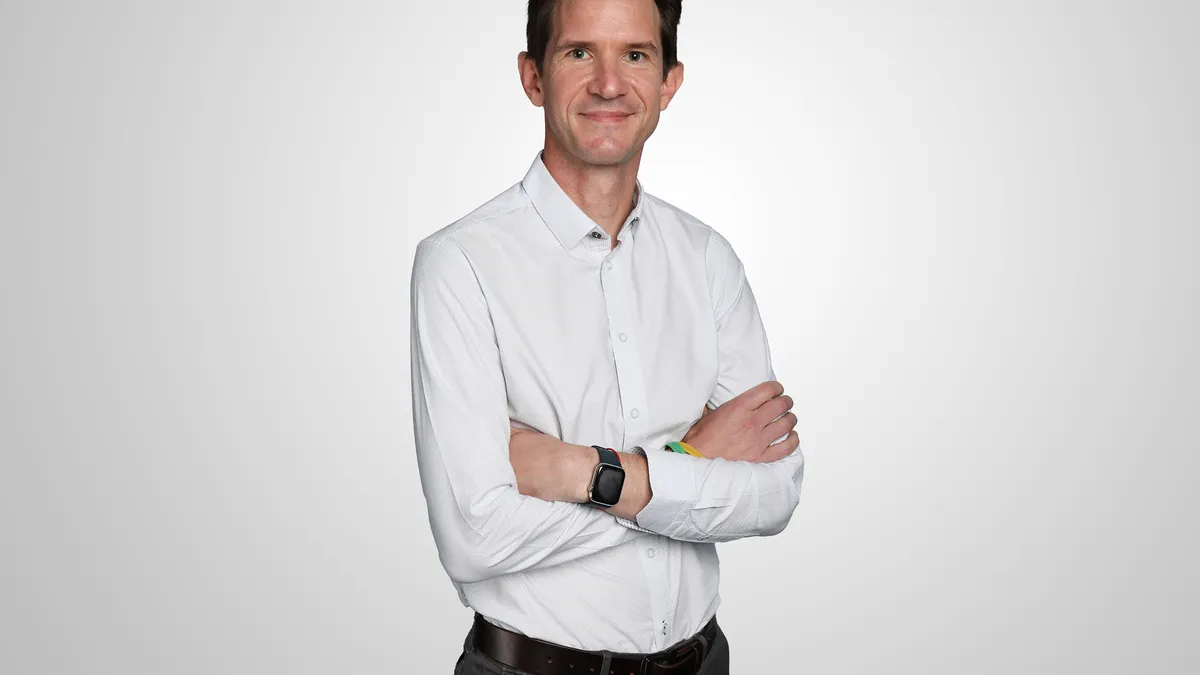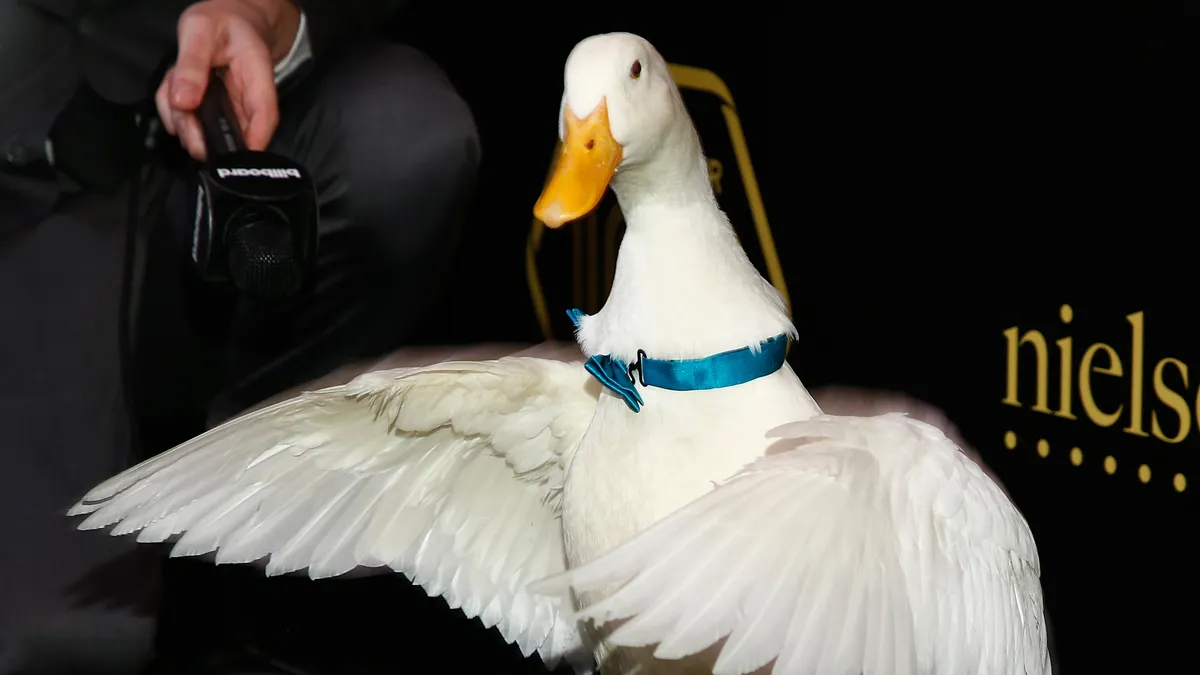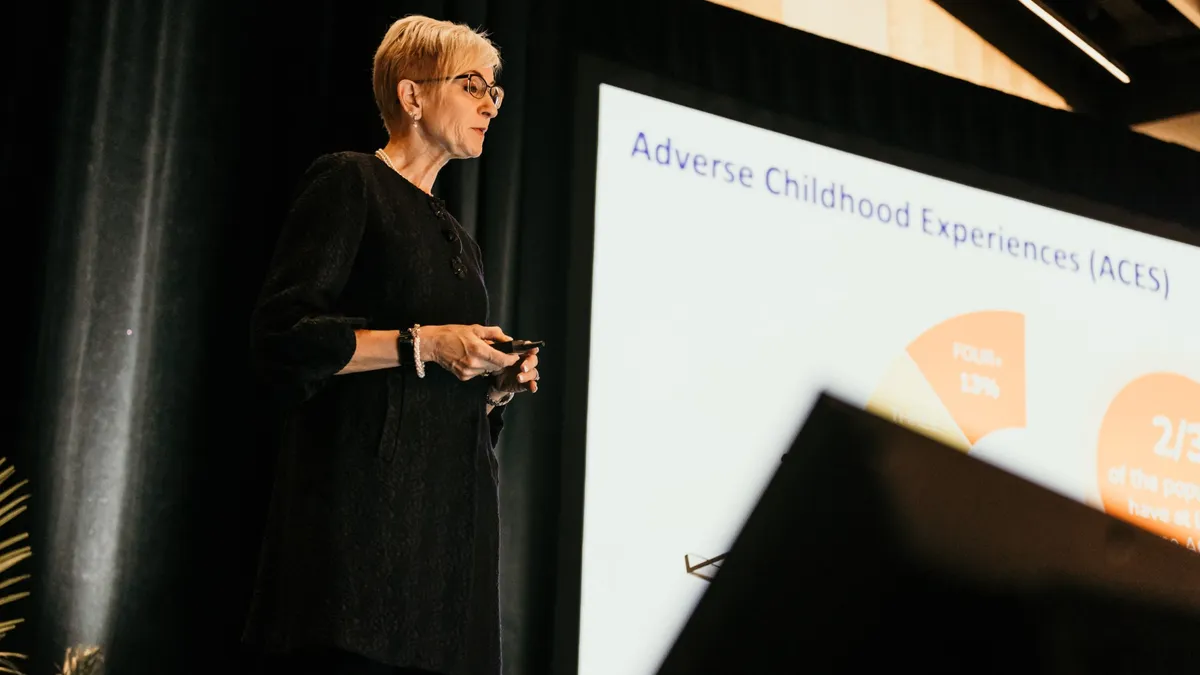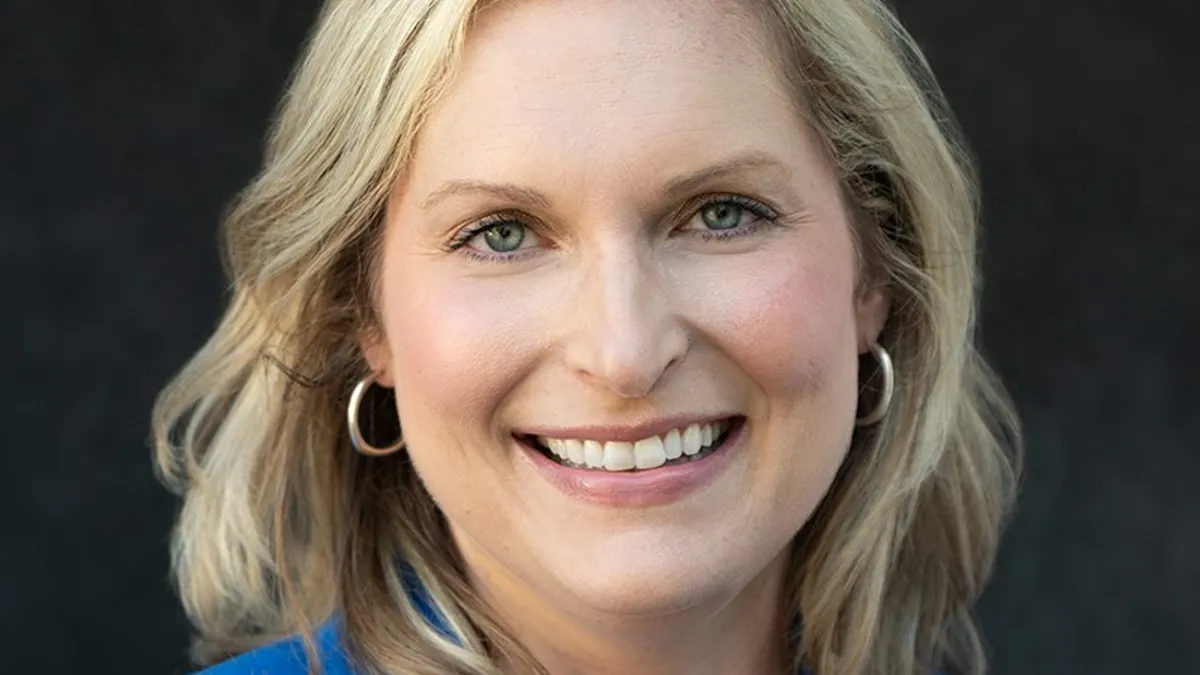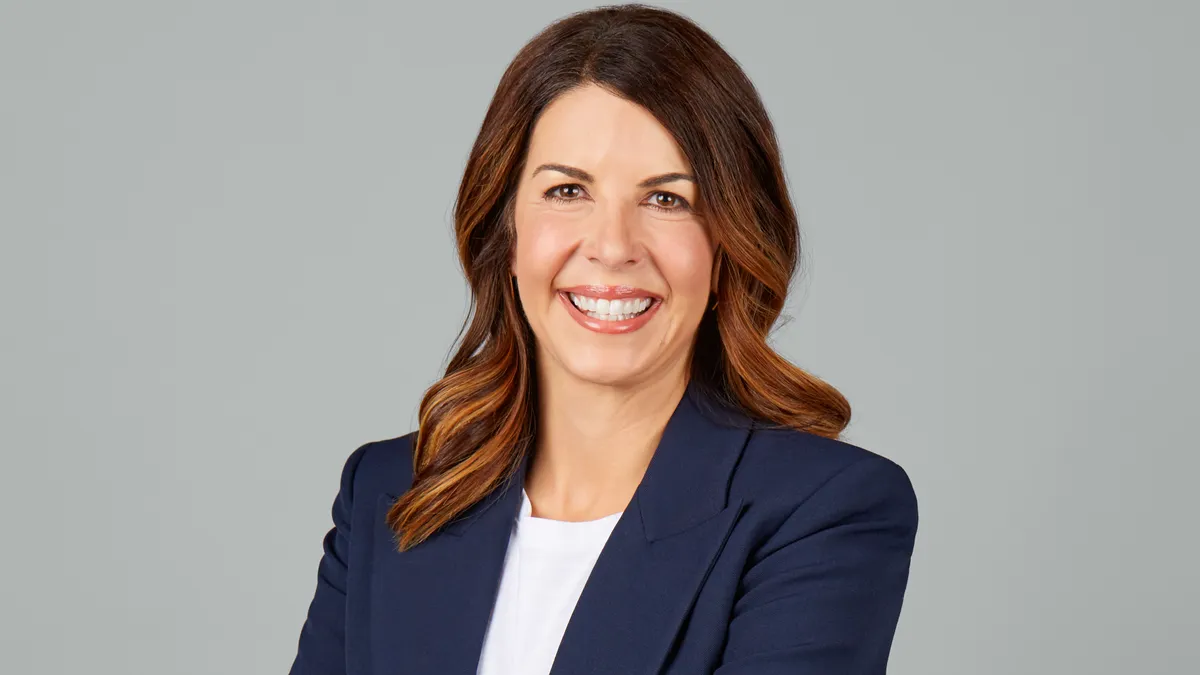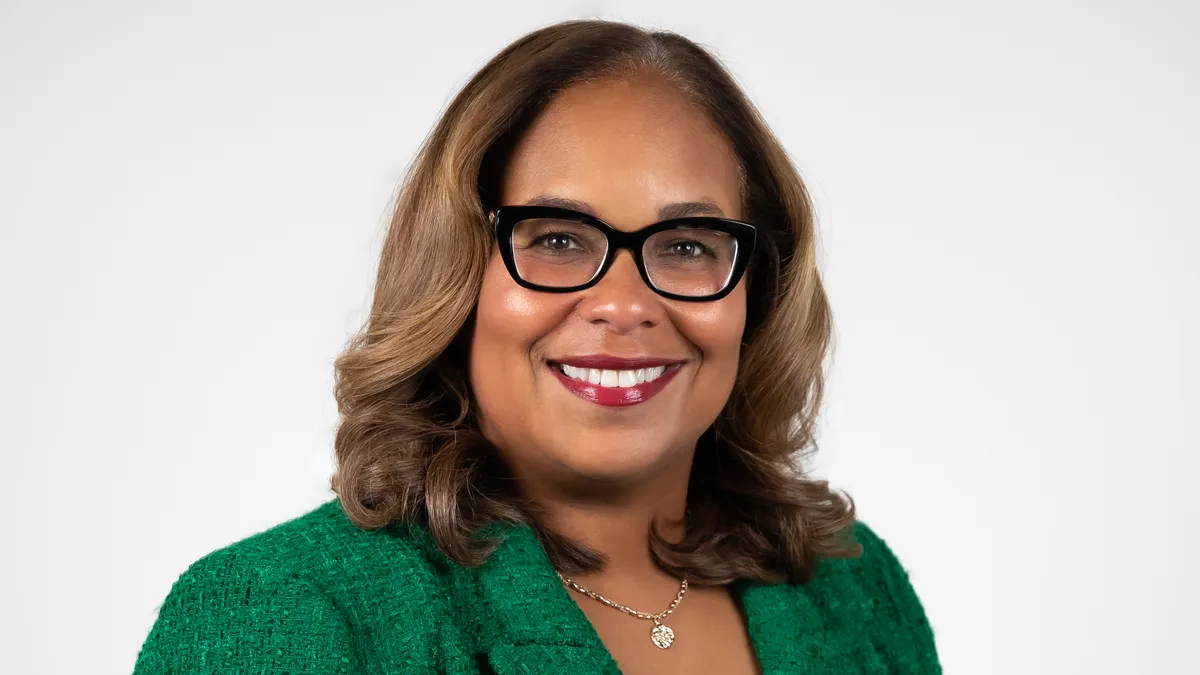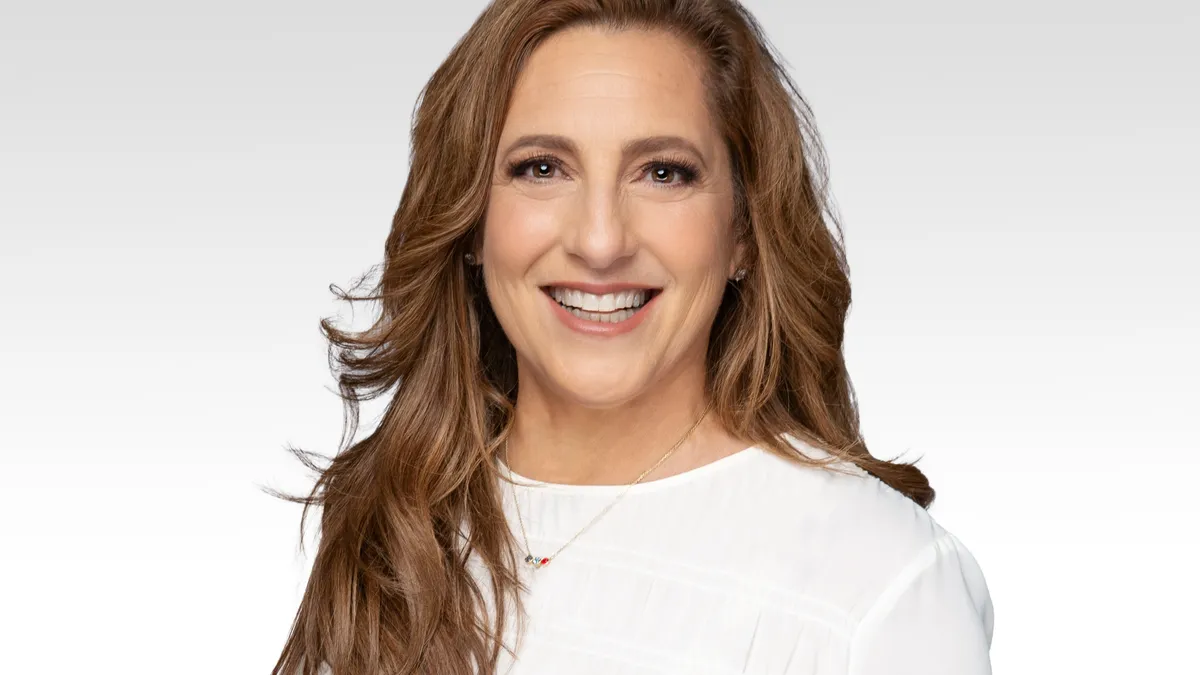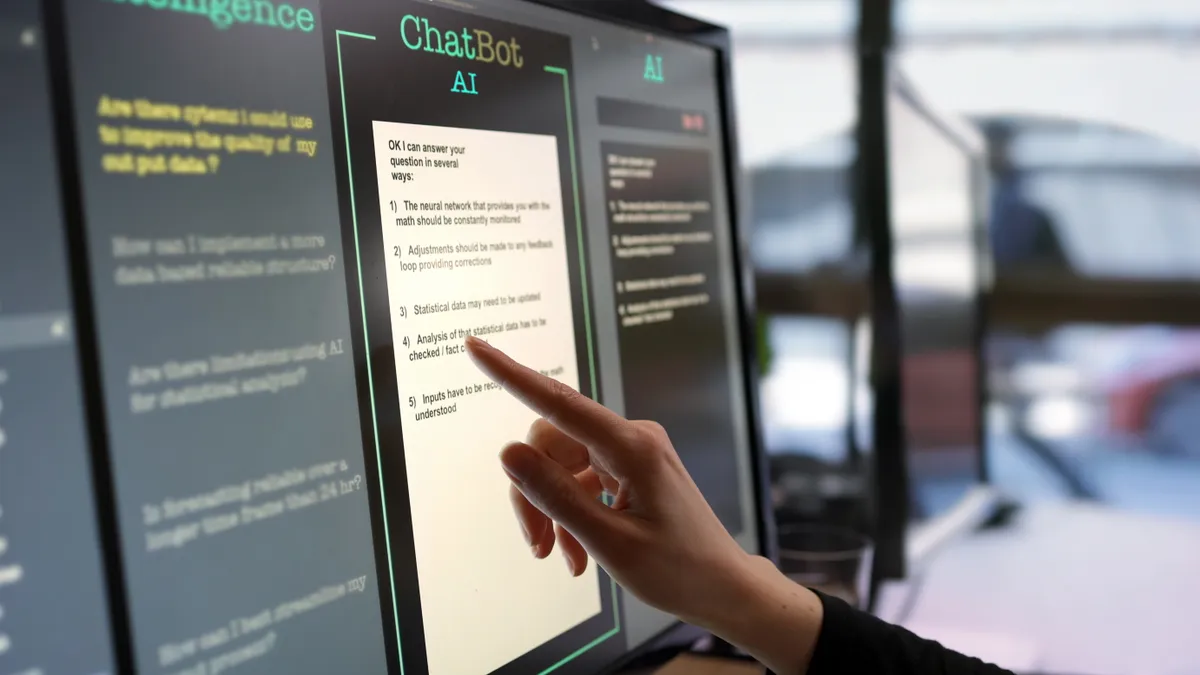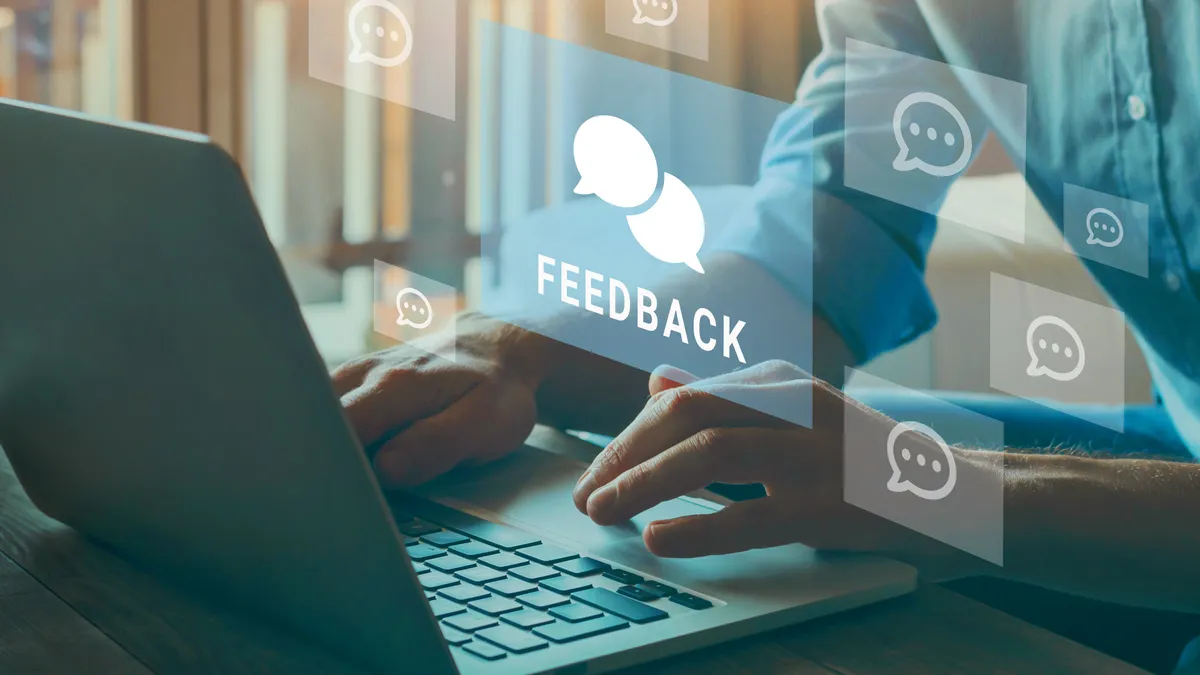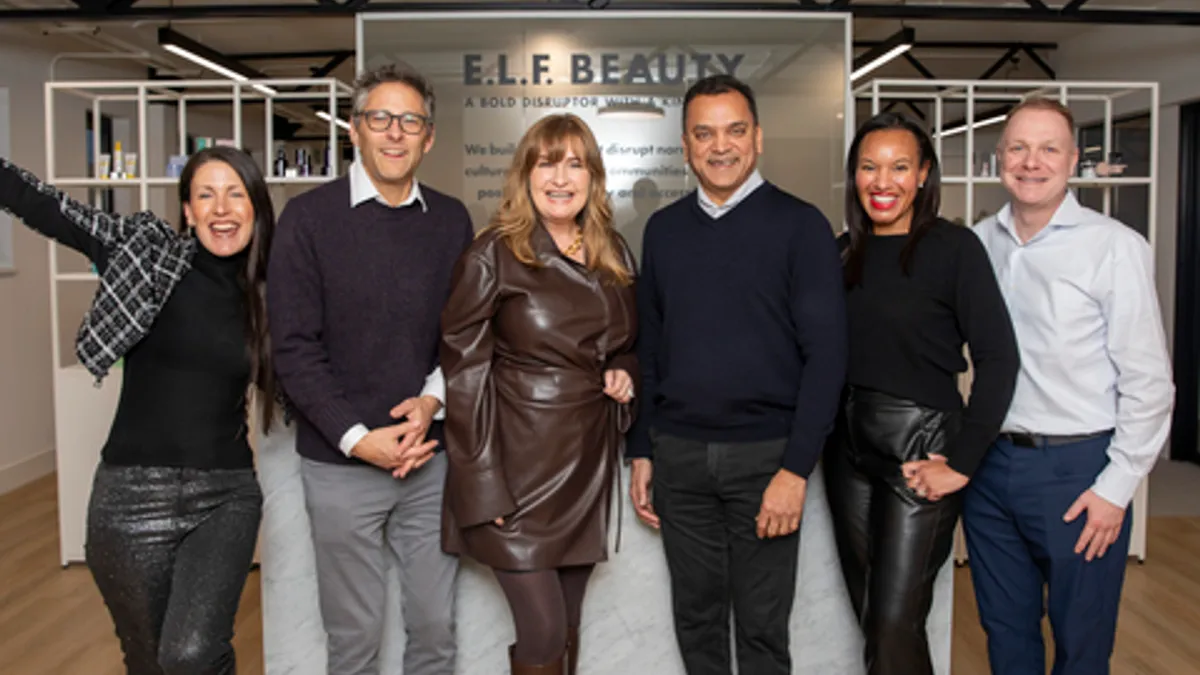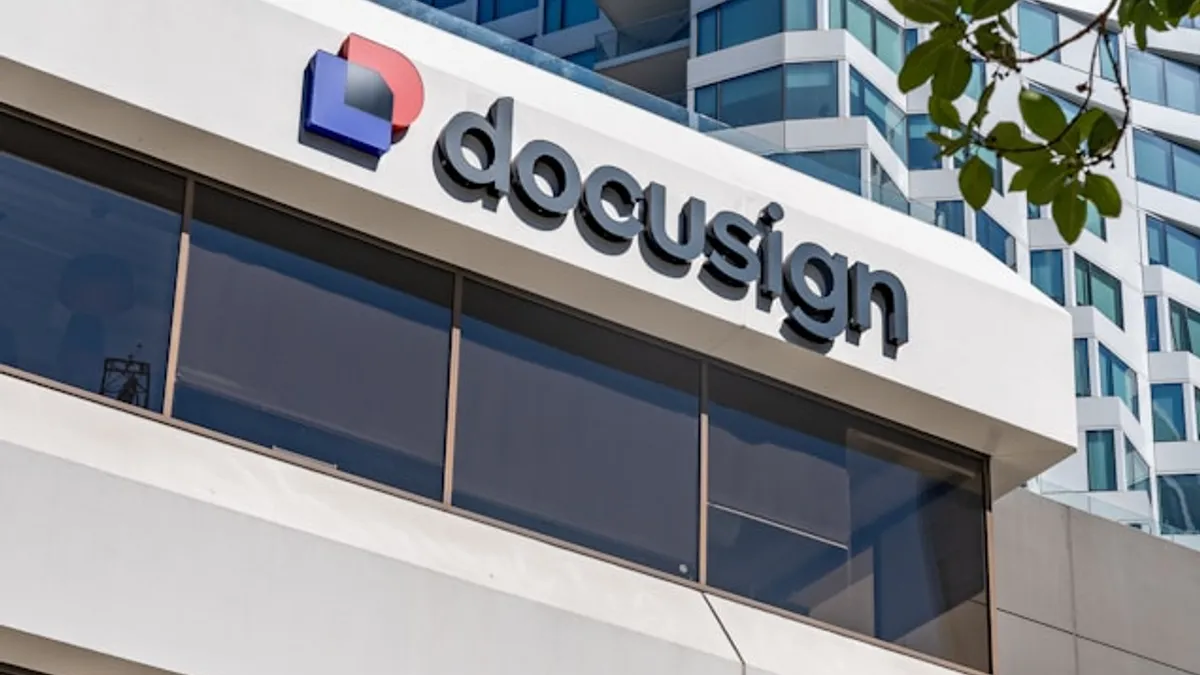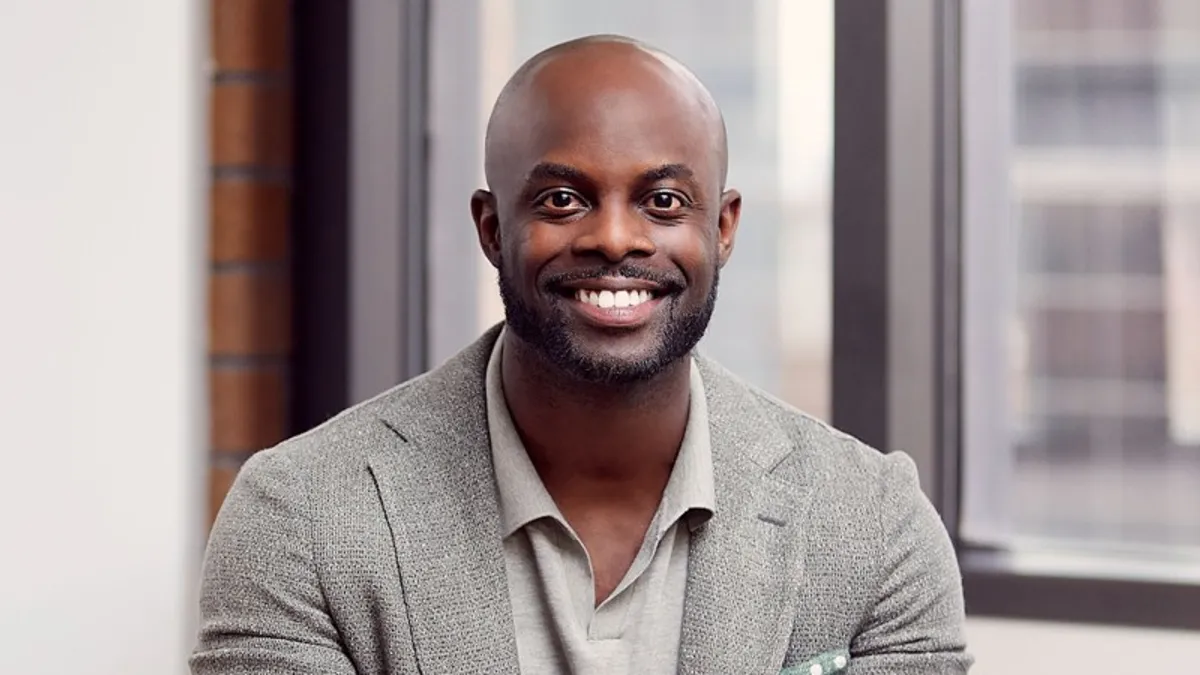Correction: In a previous version of this article, Christopher Shryock's degree was misidentified. He has an undergraduate degree in psychology.
As a kid, Sam’s Club’s Senior Vice President and Chief People Officer Christopher Shryock wanted to be a professional baseball player, but he couldn’t hit a curveball. So, instead he made a line drive for human resources.
Shryock spent most of his career in various HR roles at PepsiCo before taking the helm of the people team at Sam’s Club three years ago. Now, he’s working to make the retail chain an inclusive place to work, where associates feel a sense of belonging.
This conversation was edited for clarity and length.
HR DIVE: What inspired you to go into HR?
CHRISTOPHER SHRYOCK: I found my way to HR because I had an undergraduate degree in psychology that I won't say I regretted, but I realized when I graduated that you can't really do anything with a psychology degree. I kind of regretted that I didn't have something more business-centric that would make me more marketable.
I have a graduate degree in industrial organizational psychology, which is pretty much a mix of psychology, business and statistics. HR felt like a very logical place to apply those skills. I wouldn't say it was some lifelong dream that I had; it was really what I found myself qualified for. And more importantly, as I started doing work, in terms of doing management consulting, it was something I really enjoyed, and it was something that I wasn't terrible at.
Do you have any regrets about following this path?
I do not have any regrets about going into it. I think one of the things about HR is you get this privileged position to really see across the totality of the company, of the organization. You’re one of the few roles that can really have that enterprise perspective and connection.
If everything starts with people, and you’re only as good as the people you have working for you, you’re only as good as the culture that you’ve created. The HR function really is not the only function that influences those things, but it probably has the largest influence on them.
Would I go back and do something else? The simple answer is no. The longer answer is I’ve had a few stints running communications functions as well. I really liked figuring out how to take something that's complex and turn it into something that is simple that can be acted upon. I think there's real power in that. But I also think you can combine that with what your role and responsibility is as an HR practitioner anyway.
You can have the most brilliant plan in the world, but if nobody knows what you’re talking about and nobody’s sure what it means they should do, then it doesn’t really matter.
What is your biggest goal for this year?
I have two goals this year. The first is working to create a culture in Sam’s Club where everyone feels like they belong. So much work has been done in terms of diversity, equity and inclusion. I want this to be a place where everyone can belong.
There are so many things that are tearing people, society and culture apart. I really want Sam’s Club to be a place where everyone feels like they can have a home. If you’re a company that’s diverse, that acts inclusively and that applies equity, belonging should be a thing you have. That belonging piece is really important.
The second thing is elevating Sam’s Club, both as a brand and as an employer of choice: How do we have Sam's Club and what we're doing, what we stand for and the value proposition we have for our associates stand on its own?
How do you create that sense of belonging you’re trying to achieve?
The first step is being really clear on what you’re trying to achieve and why. The second piece is trying to be clear that moving to a culture of belonging is really a natural extension of having a diverse workforce, of the way that we act inclusively and in the way that we think about equity for associates.
It really boils down to: Who are you hiring? Who are you promoting? To a degree, who are you exiting? And who are you rewarding? Most employees, and most people for that matter, they see a lot better than they hear. It’s important to say what it is that we’re trying to move towards, but it’s much more important to start acting in those ways.
How have you seen the role of HR change during your career?
If you go back 10 to 15 years ago, HR was more of a total rewards function. If you go back five to 10 years ago, HR was about understanding more about your associates: what they want and what they can bring to the table in terms of knowledge, in terms of skills and in terms of abilities. Now, the function is evolving to doing that on an even more proactive basis, taking into consideration not only what the organization needs but also what the individual needs.
If you look at a company like Sam's Club, we have 100,000 people. We’re not going to have 0% turnover. But what we can do and what we have done is ensure that people get the best possible experience in terms of the work, in terms of development, in terms of the type of people that they’re working for, so they can actually fulfill whatever their ambitions are, whether that’s at Sam's Club or somewhere else.
What I get up thinking about every day is: Are we building and are we offering great jobs to associates? Most of our folks are front-line, so are we giving them schedules that are consistent that they can work? Are we giving them the right tools and the resources to be able to be able to do their work? Are they working in jobs and roles that are interesting? Are we giving them an opportunity to develop functional skills, manager skills? Are we giving them opportunities to develop for the future?
What would people be surprised to learn about you?
I taught myself Spanish while I lived in Russia, which was not very useful in Russia. My wife’s Russian was pretty good, and Spanish seemed like a much easier language to learn than Russian. So that’s what I went for.
What is your most prized possession?
My passport. I’ve had the great fortune to live in five countries. I've traveled to 100. One of the ways that you grow is by asking about, learning about and immersing yourself in different cultures around the world. You learn a lot about the nuances and the things that make us unique and interesting from a cultural point of view.
But, equally, one of the best things you learn is there are a lot more things that unite us than divide us. For the most part, people, wherever you find them, all want health, they want happiness, they want a better life for their kids. That’s been a very reassuring thing for me to see.
What’s been your favorite country to live in or visit?
I'll say Thailand primarily because you have beaches, you have mountains, you have real cities there. You can knock out a lot of diversity in a pretty short period of time. The people and the culture there could not be more welcoming on top of it.
What’s your guilty pleasure?
My guilty pleasure would be if there is the offering of a side salad or french fries, I’ll always go for the french fries.
What’s your go-to productivity trick?
If I’m having trouble focusing, or more importantly, if I’m just really not sure what to do, I take my dog for a long walk. So Sasha has put in a lot of miles around the same five loops in my neighborhood and most of the parks in northwest Arkansas. I really find that helpful, just kind of getting out of the moment and letting some things come to you.
What has been the high point in your career so far?
I don’t think I’ve made it to the high watermark just yet. The day you wake up and you say, “That’s it. That’s as good as it gets,” that’s retirement day. And I’m not sure I’m there yet.
What do you do when you have an unexpected hour of free time?
I go for a run. I used to run with a high degree of frequency. It’s far less frequent at the moment. If I have an hour of free time, I’m putting on shoes.
What words do you live by?
There are probably two things that I come back to over and over. The first is an old John F. Kennedy quote that’s something along the lines of: “The best time to fix the roof is when the sun is shining.” There’s no time like the present. It’s a lot easier to keep things moving, to keep momentum than it is to let things stop and try to restart them.
The second is: “Think like an economist.” What I mean by that is economists can be unprincipled, but they go where the data is, they go where the literature is, they go where the new lived experience is. Being overly traditional or overly stuck in your ways, I think, is a recipe for disaster.



